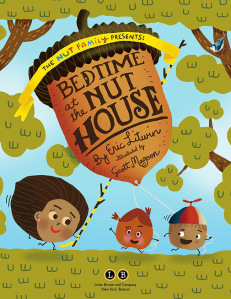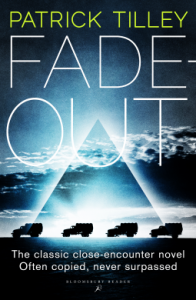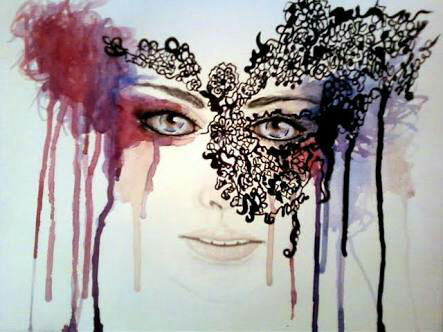I set a goal for myself that during the month of February I’d read books written by diverse authors. Being a white, anglophone reader means it’s very easy for my reading habits to become so “me centred” that I end up reading in a little bubble, a bubble that only reflects my own experiences and problems and joys. This month I wasn’t having any of it.
It’s crazy how much ridiculously good fiction there is out there that never gets mainstream attention just because it deals with the experiences of “others”, people outside the majority or outside our own culture/language. But surely reading should be all about discovering new ways of looking at the world and broadening our understanding? How boring to be constantly immersed in the stories of people who are just like me!
Now, my list isn’t groundbreaking, many of these titles have been very well received. But that doesn’t mean we should champion them any less.
Blablabla, boring intro is boring, so here’s what I read:

The Underground Railroad
Written by New Yorker Colson Whitehead, The Underground Railroad is the story of a runaway slave in the episodic tradition of The Odyssey. In this story the railroad is literally underground, with the protagonist popping up at various locations throughout the South, dealing with different trials common to runaways and freed slaves of the era. It’s brutal (as you can imagine) as well as utterly terrifying, but also shows so much hope and strength and humanity. What I liked about it is how Whitehead shows the depravity of the time, but doesn’t revel in the horrors. We feel and empathize without the gratuity that is often present in similar narratives. It is a journey and an exploration that the reader knows will continue long after the last page. A story that continues even now.
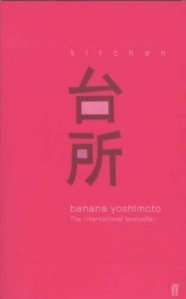
Kitchen
Simple and sparse and melancholic, Kitchen is a collection of two stories — a novella and a short story — that both deal with similar themes. It’s gently told but still latches on with its emotional intensity. A quiet, careful read that makes you care, Banana Yoshimoto explores how people experience loss, and how they begin to deal with and mend their brokenness. The endings of both narratives are distinctly hopeful, and yet with a lingering sense that nothing can really go back to how it was before.
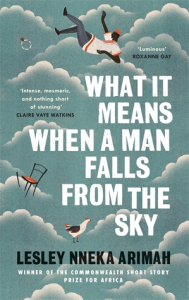
What It Means When a Man Falls From the Sky
Let me just say up front, this collection of short stories will haunt you. One of my friends recently finished it and it’s all we’ve been able to talk about all week. Set between the United States and Nigeria, this award winning collection is both steeped in magic and all too real. Its characters struggle with loss and displacement and the frustrations of being utterly powerless. Set in cultures I know nothing about, each story is utterly absorbing but terrifyingly visceral as it sucker-punches you again and again. After one of the stories (the supermarket one) I had to physically push the book away and find something else to do. But it kept drawing me in with every meticulously crafted page.
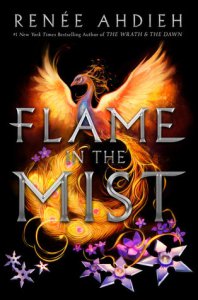
Flame in the Mist
I have difficulty giving my thoughts on Renée Ahdieh’s Flame in the Mist. On the one hand I loved it: a girl dressed as a boy, feudal Japan, Samurais, romance, magic, intrigue. It had everything I love in a YA adventure. On the other, it was soooo exposition heavy. And I get that the character is an over thinker, that it’s part of her character development, but still. It got kinda frustrating when, in the middle of the action, we had to call time to dwell on so many many thoughts and reflections and realizations and suppositions and all that stuff. Still, a fun story and lovely setting.
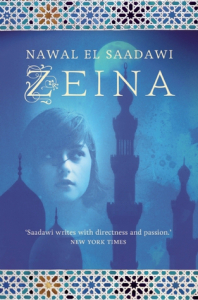
Zeina
Zeina by Nawal El Saadawi was my last read of the month and possibly my first read translated from Arabic?? I don’t know if it’s specific to her writing, or present in all Arabic fiction, but this one was definitely written in a style that differed the most from my usual reads. The narrative moved forward in cycles, circling back to old passages, moments, metaphors in an endless loop. It gave the prose a very poetic quality and reminded me of the techniques used in oral stories, where the same thing is repeated and reused throughout the telling. This one was the most pessimistic of the month, dwelling in the corrupt, dirty side of Egypt, and had me desperate for a good scrub by the end. It shines a particularly harsh on religion and men (with the exception of a certain sexy political activist), and although there are moments of hope, the ending is not the uplifting moral lesson you spend the entire narrative craving. But it’s rendered all the more powerful for it. Don’t expect this book to make you happy is all I can really say.
In March I’m reading Feminist Fiction, starting with a classic and working my way up to modern day. Any suggestions welcome!
Advertisements Share this:
